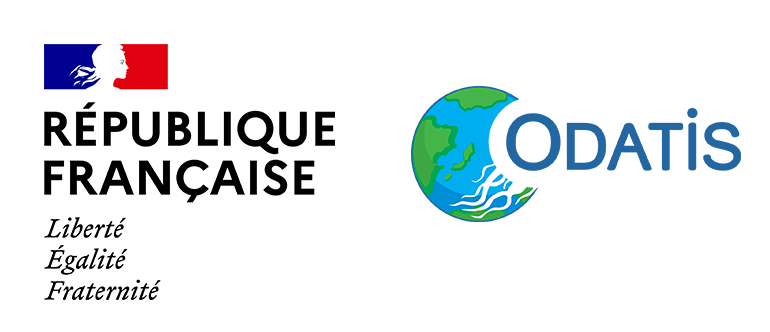Contexte international
Le Pôle océan - ODATIS s’inscrit dans le cadre des grands programmes internationaux concernés par les observations de l’océan : IOC, WMO, et UNEP de l’UNESCO, l’ICSU et le CEOS. Il s’articulera en particulier avec les comités thématiques concernés par les données d’observation de l’ICSU (SCOR, GCOS, COSPAR, WCRP, WDS) et de l’IOC (IODE, JCOMM) et les programmes d’observations du GOOS : ARGO, GOSHIP, GLOSS, SOCAT, GOSUD, GEOTrace, OceanSite ... Son objectif est d’être présent dans les groupes afin de contribuer à l’élaboration des recommandations, normes et bonnes pratiques.
Les projets et programmes européens sont listés sous le menu "Activités" en distinguant les projets dans lesquels le pôle ODATIS est directement impliqué et les autres programmes et infrastructures de recherche européens.
Instances de coordination mondiale concernées par les observations de l’Océan
WMO
| WMO carries out its work through scientific and technical programmes. These are designed to assist all Members to provide, and benefit from, a wide range of meteorological and hydrological services and to address present and emerging problems. |
IOC
| The IOC Ocean Observations and Services Section collaborates with dozens of international programmes and organizations to coordinate global scale efforts transitioning oceanography science to operational oceanographic services and products providing societal benefits and protecting the environment |
UNEP
| The UNEP programme performance report 2016, |
ICSU | ICSU works with strategic partners to plan and coordinate international research programmes that address major issues of relevance to both science and society. To this end, a number of Interdisciplinary Bodies have been created, addressing various themes, including: global environmental change; hazards and disasters; ecosystem change; oceans; space research; and solar-terrestrial physics. |
CEOS | In support of the Group on Earth Observations (GEO) objectives and as the space component of the Global Earth Observation System of Systems (GEOSS), CEOS has developed the concept of virtual, space-based Constellations. A Virtual Constellation is a coordinated set of space and/or ground segment capabilities from different partners that focuses on observing a particular parameter or set of parameters of the Earth system. |
Les comités thématiques
SCOR
| Beginning with the International Indian Ocean Expedition in the early 1960s, SCOR has been instrumental in the planning and coordination of several large-scale ocean research projects. SCOR provides a mechanism for international scientists to develop and implement such projects ... |
COSPAR
| COSPAR's objectives are to promote on an international level scientific research in space, with emphasis on the exchange of results, information and opinions, and to provide a forum, open to all scientists, for the discussion of problems that may affect scientific space research. These objectives are achieved through the organization of Scientific Assemblies, publications and other means. |
IODE
| As a result of the 39th Session of the IOC Executive Council (2006) a new responsibility was added to the objectives of IODE: "( to support international scientific and operational marine programmes of IOC and WMO and their sponsor organisations with advice and data management services. ". Through this objective the IODE, both at the international level (through IODE projects and other programme activities) as well as at the national level (through the IODE National Oceanographic Data Centres and Marine Libraries), will provide data and information management services that will underpin other IOC programmes in the areas of ocean science, ocean observations, tsunami warning and mitigation, and coastal area management. |
JCOMM (IOC/WMO)
| JCOMM coordinates, and develops and recommends standards and procedures for, a fully integrated marine observing, data management and services system that;- uses state-of-the-art technologies and capabilities;- is responsive to the evolving needs of all users of marine data and products;- and includes an outreach programme to enhance the national capacity of all maritime countrie. |
Les programmes d’observation
GOOS | Focused, finite lifetime GOOS development projects have been identified as an effective way to drive the development of the Global Ocean Observing System; both for redesigning mature observing systems, and for expanding the observing system into new areas. The projects are developed through the observing system evaluation activities of the GOOS Expert Panels, based on an assessment of observing system requirements |
GOOS related programs: |
|
Argo is a global array of 3,800 free-drifting profiling floats that measures thetemperature and salinity of the upper 2000 m of the ocean. This allows, for the first time, continuous monitoring of the temperature, salinity, and velocity of the upper ocean, with all data being relayed and made publicly available within hours after collection. | |
GLOSS | The Global Sea Level Observing System is an international programme aiming at the establishment of high quality global and regional sea level networks for application to climate, oceanographic and coastal sea level research. The programme became known as GLOSS as it provides data for deriving the "Global Level of the Sea Surface". |
GO-SHIP | The GO-SHIP Panel was established in 2007 by the IOCCP and CLIVAR to develop a strategy for a sustained global repeat hydrography program as a contribution to the OceanObs09 Conference (September 2009) and to revise the 1994 WOCE hydrographic program manual. |
Contexte général des données ‘Recherche’
Research Data Alliance |
